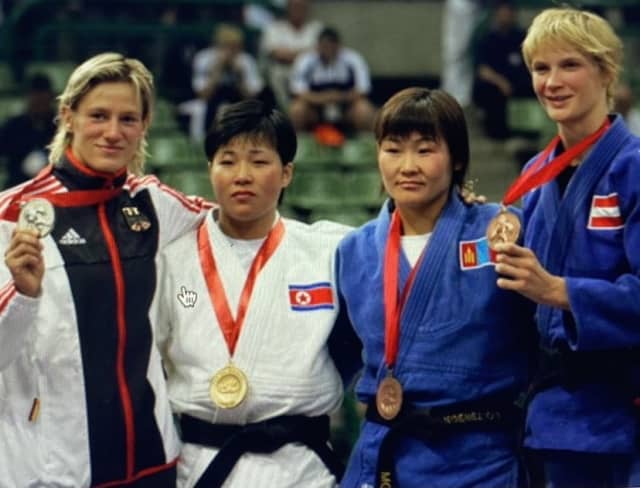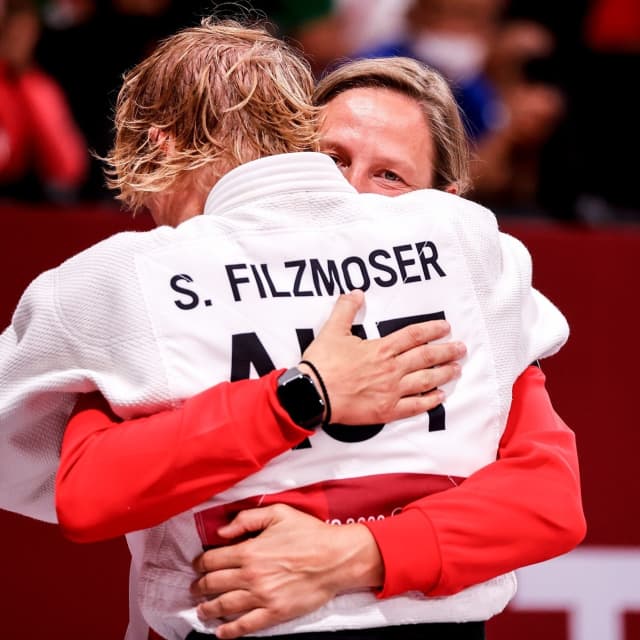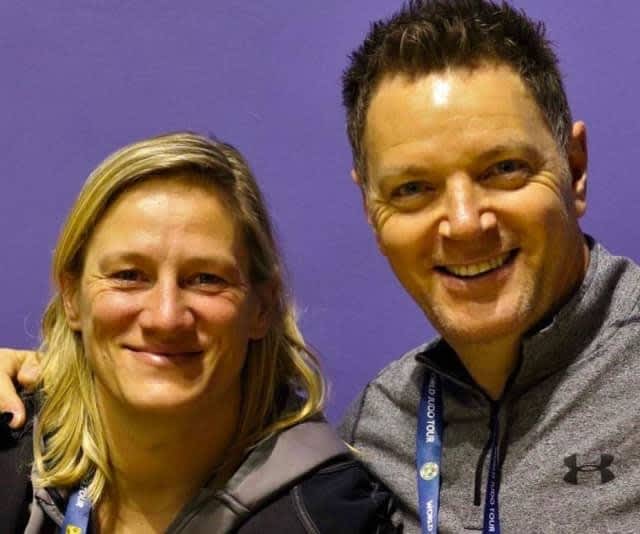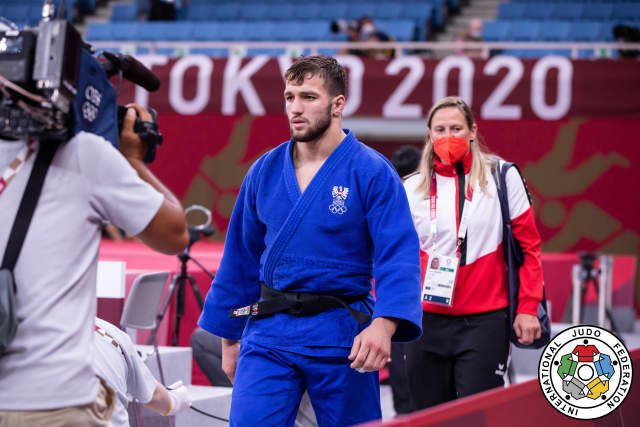She had her performance career and retired; not an original story. Then she began coaching and soon took up a role with Israel where she worked for 4 years. This was not just a coaching role but also an apprenticeship and it led Yvonne to Austria.
“I grew up in the German system and was at boarding school by myself from the age of 12 so it was like an East German system even though the wall had already been down for some years. As an athlete I grew up in that German system, with the 6 main regional centres.
When I started coaching in Israel it gave me a chance to see something so different. To come into contact with the centralised programme was so useful for my personal education. So now I have seen regional and centralised centres and with a long performance career I have a variety of experiences from which to draw, in order to come up with my own ideas.
Now in Austria, I’m working in a federation that is really open to new ideas and they are willing to trust me. The system at the moment is partly centralised, with the national team all together in Linz, where I am based, from Tuesday to Thursday every week and it has been this way since January. I came to work with the athletes, not work away from them, separately. The best athletes should be together and now they are. Their goals are aligned and they have the best partners to work with every week. This is good for their spirit. They have really grown together in these last months and we can feel a real team spirit. I feel that was missing before.
We have some good, young athletes and we are working to bring their level up now because I was, of course, focusing on the Olympic team until now. It is not an easy task; it never is, but we feel we can bring a good team to Paris in 2024. We had 6 qualified in Tokyo and I think this time we can work towards 7 or 8 players.”
Yvonne’s role is layered and she makes it that way, not just focusing on the elite judoka themselves or even the second tier. It’s also about understanding the relationships with their clubs and ensuring the coaches and clubs maintain contact and continue to support the judoka at all levels.
“They can be in their clubs and regional centres outside of those centralised days. We will try to continue this way with the part centralised system, as l believe it’s important for the clubs to see their best players. It’s also important for the judoka to have the connection with their personal coaches; that must stay strong. I write the training plans for all the athletes but their coaches work to our plan and this communication is positive.
Most people have received me well in Austria and we are already showing we are heading the right way. In every main competition we had medals this year and that hasn’t happened for a very very long time for Austria. Before this year the last world medal was Sabrina’s in 2010 and it was Paischer who won the last Olympic medal, back in Beijing in 2008! Now we have new medals in both.”

Why is it working so well?
“We work closely together and the exchange is good. Austria trusted me from the beginning. Sabrina and I are friends and have been for 25 years and so I’m sure they sought her opinion, but they also saw my own athletic success and my journey as a coach. They feel I am on their side. We speak about issues beyond the tatami. There are a lot of hours together and that trust is one of the main points behind the current success.”

In Zagreb, just a few weeks ago, Austria again raised its head, winning a medal with Wachid Borchashvili and just missing out with Katharina Tanzer, who placed 5th. That follows Shamil Borchashvili’s bronze in Tokyo, alongside Polleres’ silver. There is a pattern emerging, consistent and robust. The Paris Grand Slam always ignites the judo world and maybe it is Austria’s turn to bring that spark to life. Yvonne Boenisch will be there, guiding her team and it won’t be the last time we see her face there, mat-side, in this cycle.


